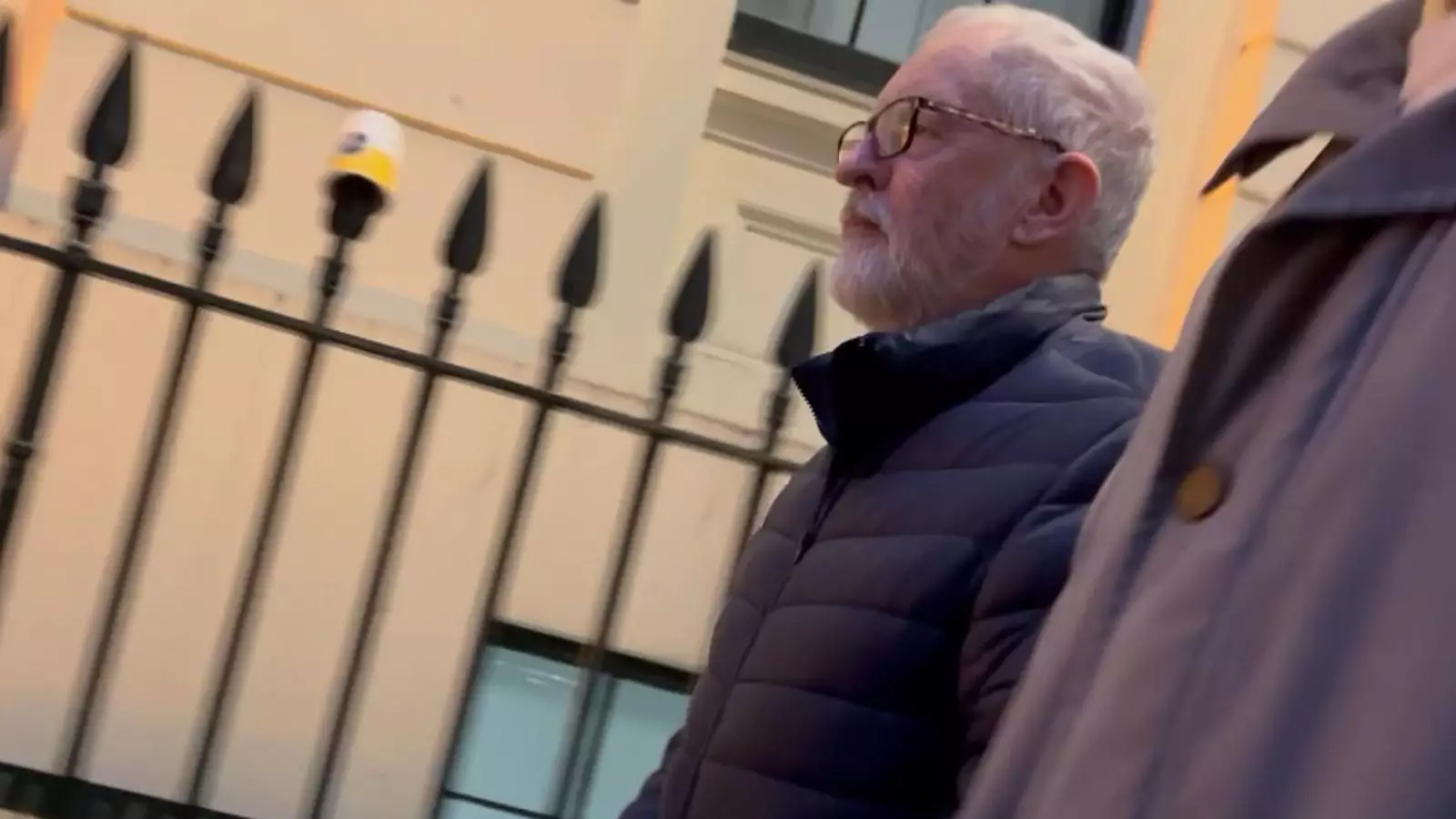In recent weeks, tensions surrounding the Israel-Palestine situation have escalated, leading to widespread protests across various cities, including a notable pro-Palestinian rally in central London. The demonstration, organized by the Palestine Solidarity Campaign (PSC), was intended to draw attention to the humanitarian crisis in Gaza following the protracted conflict with Hamas. However, the event took a contentious turn as former Labour leader Jeremy Corbyn and John McDonnell, his former shadow chancellor, found themselves under police scrutiny after voluntarily attending a police station for interviews under caution. This incident raises critical questions regarding the role of law enforcement in political protests and the ongoing discourse around freedom of expression in the UK.
The Metropolitan Police reported that they observed a “deliberate effort” by the protest organizers to breach conditions set before the event. Specifically, the authorities had imposed restrictions to prevent large crowds from gathering near a synagogue, aiming to maintain public order. In response, nine individuals, including Corbyn’s brother Piers, now face public order charges stemming from their participation in the rally. The police maintain that there was a breach of the agreed-upon conditions, whereas the PSC firmly disputes this narrative, accusing law enforcement of employing heavy-handed tactics.
As tensions escalated, the protesters reportedly aimed to continue their demonstration peacefully. They set out to walk silently toward the BBC’s offices to lay flowers in memory of Palestinian children who had lost their lives in conflict. The stark contrast between the police’s narrative and that of the PSC highlights a broader issue regarding the policing of protests and the narratives that emerge from contentious political landscapes.
Members of the PSC, along with Corbyn and McDonnell, have vocally challenged the police’s characterization of their actions. In a public statement, Corbyn refuted the claim that protesters “forced their way through” police lines, stating instead that their presence was a peaceful delegation intended to honor the victims of conflict. This assertion emphasizes a significant point: the motivations behind protests often stem from a desire to advocate for vulnerable populations and draw attention to pressing humanitarian issues.
The PSC has further criticized the police for promoting a “misleading narrative,” expressing concern that the framing of the event undermines the peaceful intentions of the participants. They assert that the protesters were met with heavy resistance despite their attempts to engage in a controlled and respectful demonstration. This ongoing contention raises critical reflections on the relationship between government entities and citizens exercising their right to protest.
Corbyn and McDonnell’s involvement in the protests, coupled with their current independent political status, underscores the complexities faced by political actors navigating contentious issues. After experiencing significant backlash for his previous leadership during the Labour Party’s tumultuous years, Corbyn has sought to redefine his political identity post-leadership, now aligned with movements advocating for humanitarian causes.
On the other hand, McDonnell has faced his share of criticisms, including a loss of party affiliation due to dissenting votes against the government. The fact that both men are willing to publicly align themselves with the PSC demonstrates their commitment to issues they deem morally pressing, despite potential ramifications for their political careers. This commitment may resonate with a faction of the electorate that prioritizes human rights and social justice over traditional party politics.
As the UK navigates an increasingly polarized political climate, discussions about the nature of protests and the boundaries of public order become ever more relevant. The alleged actions of the police during the pro-Palestinian rally highlight a need for critical introspection regarding their methods and narrative framing. The responses from Corbyn, McDonnell, and the PSC suggest that civil liberties, including the right to protest, remain under threat in a landscape where government actions are scrutinized.
It is essential to foster an environment where public discourse can thrive without the fear of criminalization, particularly when advocating for humanitarian issues. The scuffle between law enforcement and political figures during this event serves as a crucial reminder of the stakes involved in these societal dialogues and the importance of maintaining a balance between order and expression in a democratic society. Ultimately, as the political landscape evolves, the role and perception of protest will continue to emerge as a pivotal topic in shaping public policy and opinion.


Leave a Reply